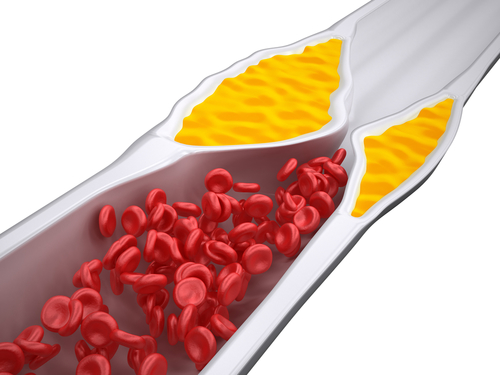Is Trans Fat Bad For You?
Also Known As: trans-unsaturated fatty acids
Short answer
Trans fat is bad for you. There are no health benefits to eating it and excessive consumption can result in serious health concerns.
Category 'F' is for things that fail to bring anything beneficial to the table, and are very harmful to your health. We recommend completely avoiding anything in this category. Long-term side effects of 'F' items are usually very serious.
View Full Grading System
Category 'A'
Very healthy and numerous health benefits. Side effects are rare. Things rated an 'A+' are typically necessary for survival (for example, water).
Very healthy and numerous health benefits. A few harmful qualities may be associated, but only under certain circumstances such as an allergic reaction.
Very healthy and numerous health benefits. Harmful qualities may be associated, but aren't usually serious.
It is important to note that even the best things in life can become bad in immoderate amounts. So, although something may be rated an 'A+', overconsumption/overdoing can bring unwanted effects.
Category 'B'
Very beneficial to your health. Things rated a 'B+' may have a few harmful qualities to pay attention to.
Overall beneficial to your health. Things rated a 'B' may have some harmful qualities to pay attention to.
More beneficial to your health than not. However, harmful qualities are most likely associated and shouldn't be overlooked.
The main difference between category 'A' and category 'B' is the harmful qualities typically present in 'B' items. Serious side effects are usually uncommon, but are still possible and should be taken note of.
Category 'C'
Both beneficial and harmful qualities associated. Things rated a 'C+' are typically a bit more on the beneficial side. Still, moderation is important.
A fairly even ratio of beneficial and harmful qualities. Moderation is important. Very general topics that can lean towards both sides of the spectrum will be placed here as well. Rice, for example, can be good or bad depending on the type.
More harmful than beneficial. Side effects are common, especially when consumed/done excessively. Moderation is very important.
Category 'C' usually denotes to both good and bad qualities. When it comes to this category, it is important to keep this word in mind: moderation.
Category 'D'
Harmful to your health. Although benefits may be associated, the bad most likely outweighs the good. Moderation is very important.
Harmful to your health. A few benefits may be associated, but the bad outweighs the good. Moderation is extremely important.
Harmful to your health. Very few, if any, benefits are present. Things in this category should be avoided as much as possible.
Category 'D' is typically for things that are more harmful than beneficial. While consuming/doing something unhealthy once in a blue moon shouldn't hurt, we definitely recommend eliminating 'D' items as a regular part of your routine/diet.
Category 'F'
Category 'F' is for things that fail to bring anything beneficial to the table, and are very harmful to your health. We recommend completely avoiding anything in this category. Long-term side effects of 'F' items are usually very serious.
Category 'N'
'N' stands for neutral. Things placed into this category are generally (a) neither good nor bad for you, or (b) lack the necessary evidence to reach any conclusions.
Long answer
Also known as trans fatty acids, trans fat is a deadly addition to your favorite junk foods. As it is naturally only found in dairy and certain meats, trans fat needs to be industrially produced. The resulting fat-- which may read on the label as partially hydrogenated oil-- lasts longer and is consequently added to foods to lengthen their shelf life. However, as the FDA no longer recognizes trans fat as being safe for consumption, many food manufacturers have begun removing it from their products. This luckily means that it is less prevalent in food than it was about ten years ago. However, trans fat can still often be found in (but not limited to) pre-packaged baked goods, margarine, fried food, fast food, chips, and microwaveable popcorn.
So why is this fat so bad for you? For one, trans fat has the special ability of not only raising your bad cholesterol (LDL), but simultaneously lowering your good cholesterol (HDL), too. The buildup of LDL in your arteries can then lead to strokes and heart attacks. Eating excessive amounts of trans fat can also contribute to the development of heart disease and type II diabetes. It can increase any inflammation throughout your body, thereby increasing the likelihood of developing illnesses associated with inflammation, such as metabolic syndrome, cancers, and arthritis. Not surprisingly, a higher intake of trans fat is also associated with a higher incidence of obesity. All of these issues inevitably lead to a more imminent death.
For all of the bad that trans fat does, surely there must be some good, too? Unfortunately, this is one of those cases where there are all cons and no pros. Health professionals recommend that you limit your intake of trans fat to no more than 1% of your daily calories in order to reduce your risk of the issues associated with its consumption. If you can, cut it out of your diet completely so that you can increase your chances of living a long and healthy life.
Possible short-term side effects
- feeling weighed down and sluggish
Possible long-term side effects
- heart disease
-
heart attack
-
stroke
-
type 2 diabetes
-
depression
-
early death
Commonly found in
Healthier alternatives
- monounsaturated fat
-
polyunsaturated fat
Please turn your Ad Blocker off to see this content. Thank you!
Thank you for your feedback!
Written by Lindsay
Published on: 02-05-2016
Last updated: 12-10-2016
Thank you for your feedback!
Written by Lindsay
Published on: 02-05-2016
Last updated: 12-10-2016

 Approved by
Approved by 















